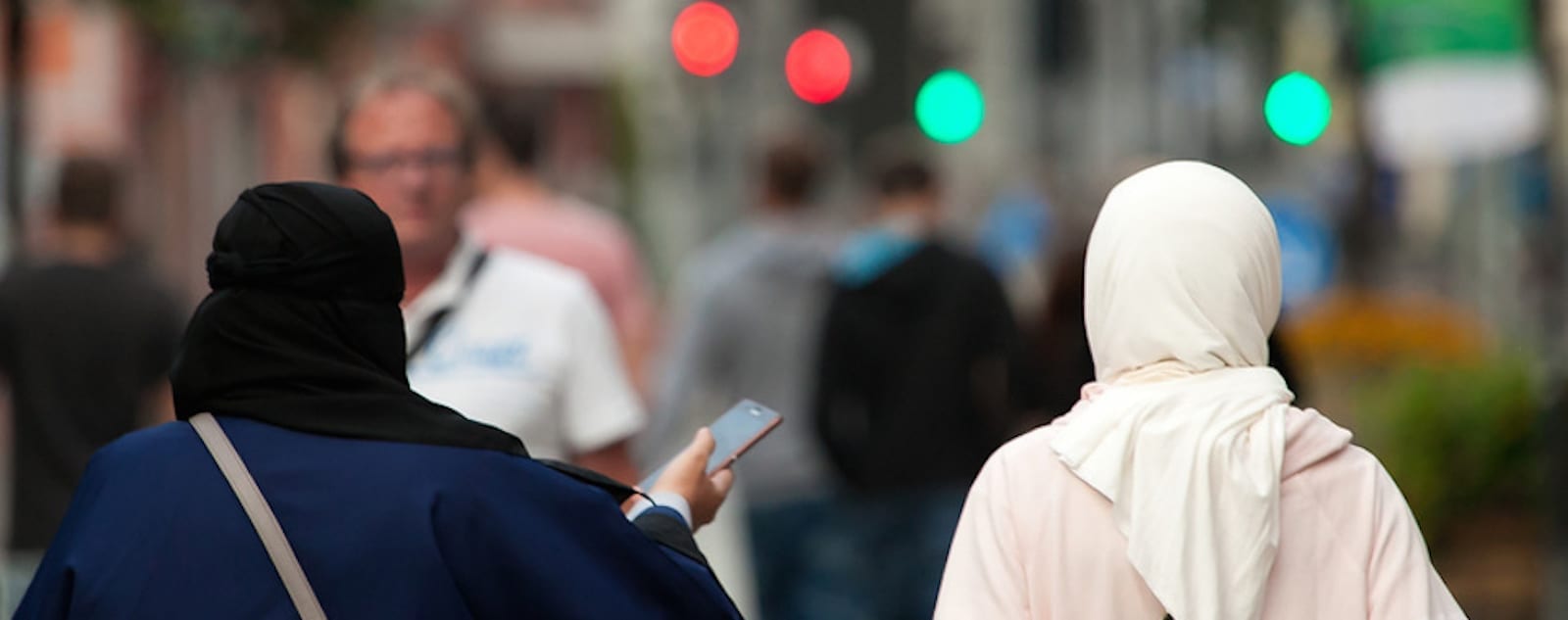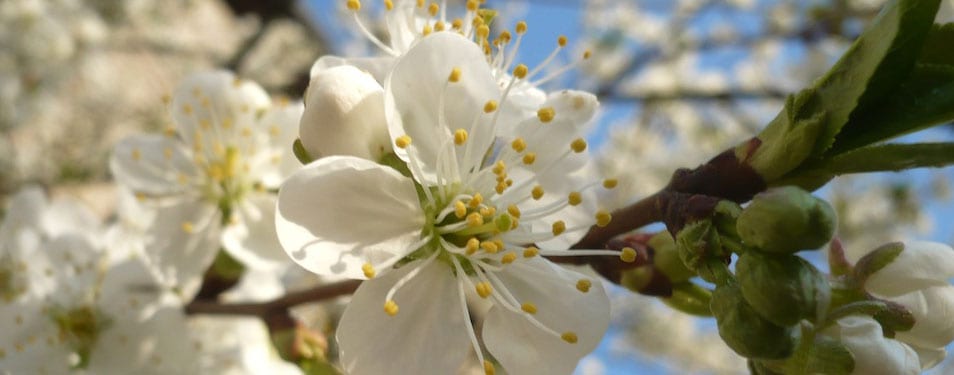Refugees and locals
A few years ago I worked with a woman from a war zone in the Middle East. It took her a while to trust me. Then she told me the story of her ten-day flight to Germany with her young children. Everything back home is destroyed. There are no houses left. She showed various symptoms of trauma and was determined to continue living here for her children and with them. She already spoke German and hoped to return home later.
After this encounter, I published the following article as a psychological reflection on current emotional movements in individuals and groups of people, as I usually do in my blog. Of course, reading this may trigger economic, sociological, legal, religious or political associations, which is probably inevitable.
First of all, I am not talking here about people who come to us hoping to find more promising or rewarding work, education, health care or whatever else is desirable than what they knew in their previous place of residence. I am talking about people who were in mortal danger in their previous place of residence and who set out to escape it.
Moreover, when I speak of ‘the refugees’, I must also speak of ‘us’. We’ are the people who already live where the refugees feel safe enough to stay for the time being. It is only through our view of them – and equally through their view of us – that the phenomenon of ‘locals and refugees’ arises, which is what I am interested in here.
If ‘we’ weren’t already here, the refugees, i.e. the people who have obviously fled war, persecution, poverty or other intolerable circumstances, might still stop here because they find the area and the climate favourable. Our region in Central Europe may or may not be the last stop on their journey. However, they wouldn’t have the status of ‘refugees’, but perhaps ‘refugees’, ‘survivors’, ’emigrants’, ‘settlers’ or even ‘arrivals’.
If we locals were not already here, our area would probably be only marginally safer than the one the refugees left months ago. There would be no infrastructure, no medical care, no roofs over their heads, no law enforcement or police to protect them, no education, no jobs, no compassionate helpers. It would be the Wild West of Europe. Well, it is what it is: we are already here, and the refugees are joining us. What is wrong with them? And what is wrong with us?
I see two simple things: 1. Refugees are human beings. You can see that: they walk upright on two legs, they feel, they think and they speak. 2. Refugees are foreigners. They feel, think and speak differently to us. You can usually see that too. Let’s see what this small distinction between “people, i.e. beings like us” and “strangers, i.e. different from us” can reveal, clarify and make understandable.
Refugees are people
Like us, they are all born of a woman. They have parents and grandparents, often siblings, spouses, children and grandchildren. They eat, they sleep, they cry, they argue, they are homesick. They are kind or angry, honest or criminal, just like us. Almost all of them have lost someone, often many people – relatives, friends, colleagues. They have all lost their physical home, their earthly home.
They have a story, just like us. Most of the time that story is so full of horror that it is not easy to tell. If their stories were less horrific, they would not have chosen the unknown over their homeland. The driving force behind refugee movements is unbearable horror, combined with the idea that things might be less terrible elsewhere. There is no other sufficient reason to leave one’s home and embark on a potentially life-threatening journey to an unimaginable foreign land. The refugee movement is a rescue movement. It arises directly from our human instinct to survive. No one can suppress that instinct.
Refugees are strangers
They often have a different skin colour from us. They speak differently, not only in languages that are mostly unfamiliar to us, but they also use language differently from us. They have different habits, whether in their families, among their friends or at work. They often eat different things from us, and at different times of the day. They pray to different gods. They have different ideas about what is right and wrong, good and bad, permissible and impermissible. They have different desires from ours, different fears, joys and foibles. They consider different things to be important than we do.
Often refugees are preoccupied with things that most of us locals think we left behind long ago: war, death, threat, injury, rape, torture, displacement and destruction. Religious, economic and ethnic oppression are also among the horrors they carry with them when they manage to leave the physical location of these threats. Now they are here. What comes next?
Horror, external and internal
They bring with them experiences similar to those of our ancestors three generations ago during and after the Second World War. These experiences affect every family in our region. Three generations ago, there were twelve million German expellees and refugees. Seventy years later, many of them still feel like strangers in the places where they now live. Only now, more than seventy years later, are local people beginning to see the effects of collective traumatic survival mechanisms in their own lives. They are beginning to talk about it and deal with it beyond its formal functioning or concealment.
Constellation work shows how the horrors of the past are taken on by subsequent generations in childlike, dependent love in order to stay with their disturbed parents and find inner contact with them. We often see how this unconscious loyalty keeps the horror of the past alive within us, how it influences our attitudes to life, our symptom formation and our decisions. We will continue to encounter the horror of the past in the external world of today until we dare to look at it openly within ourselves. In this way the external world helps us to find ourselves within, also in a collective sense.
At the moment, it seems that it is the refugees who are bringing us the horrors that we locals still keep locked up inside ourselves. They are bringing the experiences of our grandparents and great-grandparents to our doorsteps, whether as victims or perpetrators or both. In doing so, they may be doing us an invaluable service: they are showing us our inner selves. They bring it to us. This is a huge challenge, which makes the current administrative and financial challenges seem quite easy. And only foreigners can do that for us. We locals are too close; we are always caught up in our collective defence and protection mechanisms.
The two forms of defence
Those of us who are not yet able to look into the eyes of the refugees and see the echoes of the horrors of the past, while at the same time feeling that peace, security and relative prosperity now define our lives, must defend against the horrors that come to us with the strangers.
There are two ways of doing this: either you see in the foreigners only ‘the foreign’, i.e. that they are different from us. Then you have to worry and use your own ‘cultural identity’ as a shield against your own fears. In the worst case, you will physically fight the refugees. Or you see only ‘the human’ in them, i.e. that they are just like us. Then you have to help them with everything that is difficult, overworking yourself terribly, trying to integrate them and, ideally, turn them into locals at some point.
In the first case, you are so hypnotised by the ‘foreigner’ that you cannot see the humanity in them. In the second case, you are so hypnotised by their humanity that you fail to see their strangeness, or the very likely prospect that refugees will remain strangers for several generations. In both cases, you fail to see them for what they are: foreign people who have fled here to escape horror. In both cases, you take away some of their dignity and some of your own. It does not seem easy to see the humanity and the strangeness in them at the same time, to appreciate both equally. It requires you to see yourself and recognise who you are. And it can simultaneously set this inner process of awareness in motion.
Look at what is
You cannot take away the strangeness of the refugees, but you must accept it and leave them alone. They will not become Germans, they will remain Afghans, Syrians, Moroccans or Libyans. You cannot take away your own sense of belonging, but you have to accept it. Locals have a responsibility in their own country for how they live together, both with each other and with their guests, in this case their refugees. We must accept this responsibility because it is what makes us at home in this country. Integration’ will remain a nightmare as long as we ignore these basic dynamics. It can lead to a new community if we start to see ourselves and stop pitting ‘the foreign’ and ‘the human’ against each other.





0 Comments